
Paradox in the Greek poll: Attitudes towards immigrants improve, the opposite in political relations

It is hard to imagine daily life in Greece without them; people of Albanian origin perform essential work for many daily services, especially in skilled professions. Their relationship with the majority of the Greek population has seen ups and downs.
Gone are the days when immigrants from the neighboring Adriatic country were seen as dangerous competition and often faced racial discrimination. Gone is the widespread anti-Albanian sentiment of the 1990s, when hundreds of thousands of people flocked across the southern border in search of a better future after the fall of communism.
Today, immigrants from Albania constitute the largest group of foreigners in Greece, with almost two-thirds of registered foreigners coming from Albania. Although they are the largest group with a migrant background, Greek Albanians are less visible, having adapted and integrated like no other national group in recent years and decades. One might describe this as assimilation.
"The change that many immigrants undergo even affects their personality and appearance," noted an Austrian daily newspaper in a 2014 article titled "Greece's Hidden Albanians." If the author were to write about the Albanian community in Greece today, he could title the story "The much-loved Albanians of Greece".
This opinion is supported by an opinion poll published in Athens, conducted by the Market Research Unit at the University of North Macedonia in cooperation with the ELIAMEP expert group on behalf of the Konrad Adenauer Foundation. The survey explored Greek attitudes towards bilateral relations and views of Albanians who have made Greece their home.
The results are surprisingly positive. Almost four out of 10 Greeks (78%) say that people from Albania are making a positive contribution to the economic development of their country. Even higher is the number of those (80%) who believe that the children of Albanian immigrants who grew up in Greece and went to school there are fully integrated into Greek society. "Their children are like us, there are no more differences", comments Professor Ioannis Armakolas from ELIAMEP, appreciating the exceptional qualities of many students with Albanian roots in his faculty.
At a time when reports of xenophobia and intolerance towards foreigners are common in Europe, the statistics from Greece stand out. Armakolas also talks about a "Greco-European success story".
These findings are worth mentioning because they contrast with Greek perceptions of political relations between Athens and Tirana. Armakolas describes this as a "paradox": While Greek attitudes towards Albanian immigrants are improving, assessments of political relations are significantly worse. Only one in five Greeks has a positive opinion of the neighboring country, while 40 percent have a negative view. The poll also shows weak opinions of North Macedonia, with Bulgaria and Serbia enjoying higher favorability ratings.
The case of the convicted mayor of Himara, Fredi Beleri, has caused new tensions recently. The government of Athens placed the local Albanian politician of Greek origin on the list for the European Parliament elections, attracting media attention and straining bilateral relations.
An intriguing result of the opinion poll is that a significant majority of Greek respondents do not share this negative assessment. Two-thirds (66%) say there are more important issues in Greek-Albanian relations than the case of the imprisoned mayor.
"The societies are ready for the improvement of relations," concludes Armakolas. "Politics should take this into account. Societies are ahead of politics."
*Dr Ronald Meinardus is a senior researcher at the Hellenic Foundation for European and Foreign Policy (ELIAMEP)./ ekathimerini /
Latest news


Posta e mëngjesit/ Me 2 rreshta: Çfarë pati rëndësi dje në Shqipëri
2025-05-09 06:45:46

How did LaCivita change the DP campaign? Berisha: He studied the opponent
2025-05-08 22:49:51

David defeats Goliath
2025-05-08 22:15:50

Journalist: There are SPAK infiltrators in party headquarters
2025-05-08 21:55:15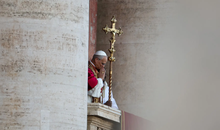
Who is the new Pope?
2025-05-08 21:48:13
Berisha finally reveals when he will retire from politics
2025-05-08 21:33:46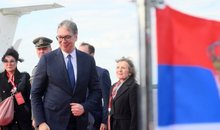


LaCivita in Lezha: Albanians will fire Edi Rama from his job
2025-05-08 21:11:20


Berisha: LaCivita chose us because he believes in Reagan's program
2025-05-08 20:48:40
He rejected America to serve Pogradec, Genti Çela tells about life in "Elevate"
2025-05-08 20:26:28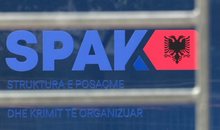



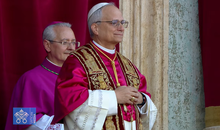
Pope Leo XIV greets the faithful for the first time in St. Peter's Square
2025-05-08 19:29:33




Photo session with LaCivitta in Tirana: For Great Albania
2025-05-08 18:40:18
Source: DASH decision a personal victory for Berisha
2025-05-08 18:30:10
Take off those crazy glasses and see where you've taken him?
2025-05-08 18:02:47
LDK files criminal charges against members of the incumbent Government
2025-05-08 18:02:00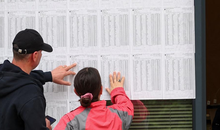

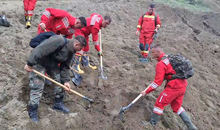
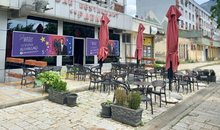



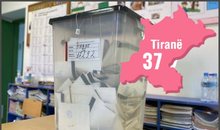
BIRN analysis: Tirana, the determining district for the future majority
2025-05-08 16:04:03




Chris LaCivita's contract with the DP, Berisha: 100% correct and clean
2025-05-08 15:11:11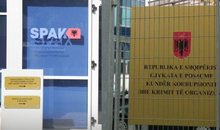
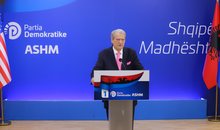
"These are the peak days", Berisha reveals when he will travel to the USA
2025-05-08 14:45:25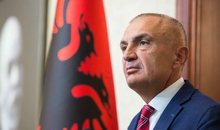

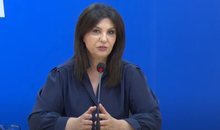
Endless boxes with filled-in ballots, DP demands separation of votes from Greece
2025-05-08 14:11:12


Photo/ Who are the 3 associates of Talo Çela arrested in Dubai?
2025-05-08 13:37:09

Hetimi për krimet zgjedhore, Altin Dumani zbarkon në Prokurorinë e Shkodrës
2025-05-08 13:06:21
DASH paves the way for Berisha, Alizoti: Great news on the eve of Great Albania!
2025-05-08 13:03:48
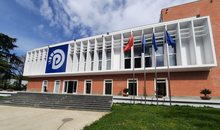
"Freedom works", DP welcomes the US position
2025-05-08 12:48:07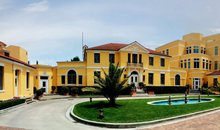

Black smoke rises from the Sistine Chapel, the Vatican still without a Pope
2025-05-08 12:26:18





Davide Pecorrelli extradited to Albania
2025-05-08 11:29:04
'May 11, Albania will react', Xhaferri: Electoral criminals will pay
2025-05-08 11:21:46

Gjin Gjoni: Non Grata fell, Rama should get ready to go to McGonigal
2025-05-08 11:01:54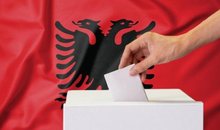
May 8th deadline for immigrants to vote in Greece extended by one day
2025-05-08 10:48:42
Collapse of massive chrome structure, still no trace of 29-year-old
2025-05-08 10:40:04
Vehicle bursts into flames in Paris Commune
2025-05-08 10:25:43
He gave land to his father and cousin, Basir Çollaku denounces the SP candidate
2025-05-08 10:16:16
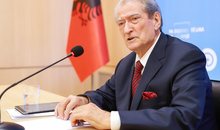



Electoral Crimes/ BKH agents and Police conduct checks in Shkodra
2025-05-08 09:19:13
3 associates of Talo Çela arrested in Dubai
2025-05-08 09:02:28
Mouse in the owl's claws, Chris LaCivita responds directly to Rama
2025-05-08 08:45:40
Foreign exchange, how much foreign currencies are sold and bought today
2025-05-08 08:30:38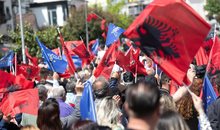
BIRN: Organized crime, the 'invisible party' of the Durrës elections
2025-05-08 08:26:35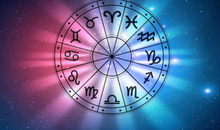
Horoscope, what do the stars have in store for you today?
2025-05-08 08:08:15
Cloudy and rainy, what the weather is expected to be like throughout the day
2025-05-08 07:52:13
Posta e mëngjesit/ Me 2 rreshta: Çfarë pati rëndësi dje në Shqipëri
2025-05-08 07:40:16


Rama attacks Bardhi: Fier cannot be represented by the world's gas
2025-05-07 22:36:22
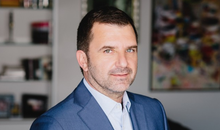

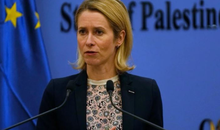
EU calls on Israel to lift humanitarian blockade in Gaza
2025-05-07 21:42:34
"Russia is "asking for a lot"! Vance calls for direct Moscow-Kiev talks
2025-05-07 21:20:16





Bank of Albania sets limits on home loans, Sejko: The maximum will be 85%
2025-05-07 20:16:10


